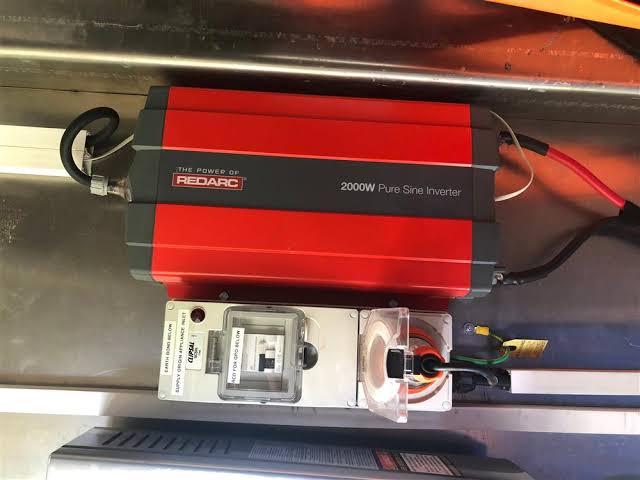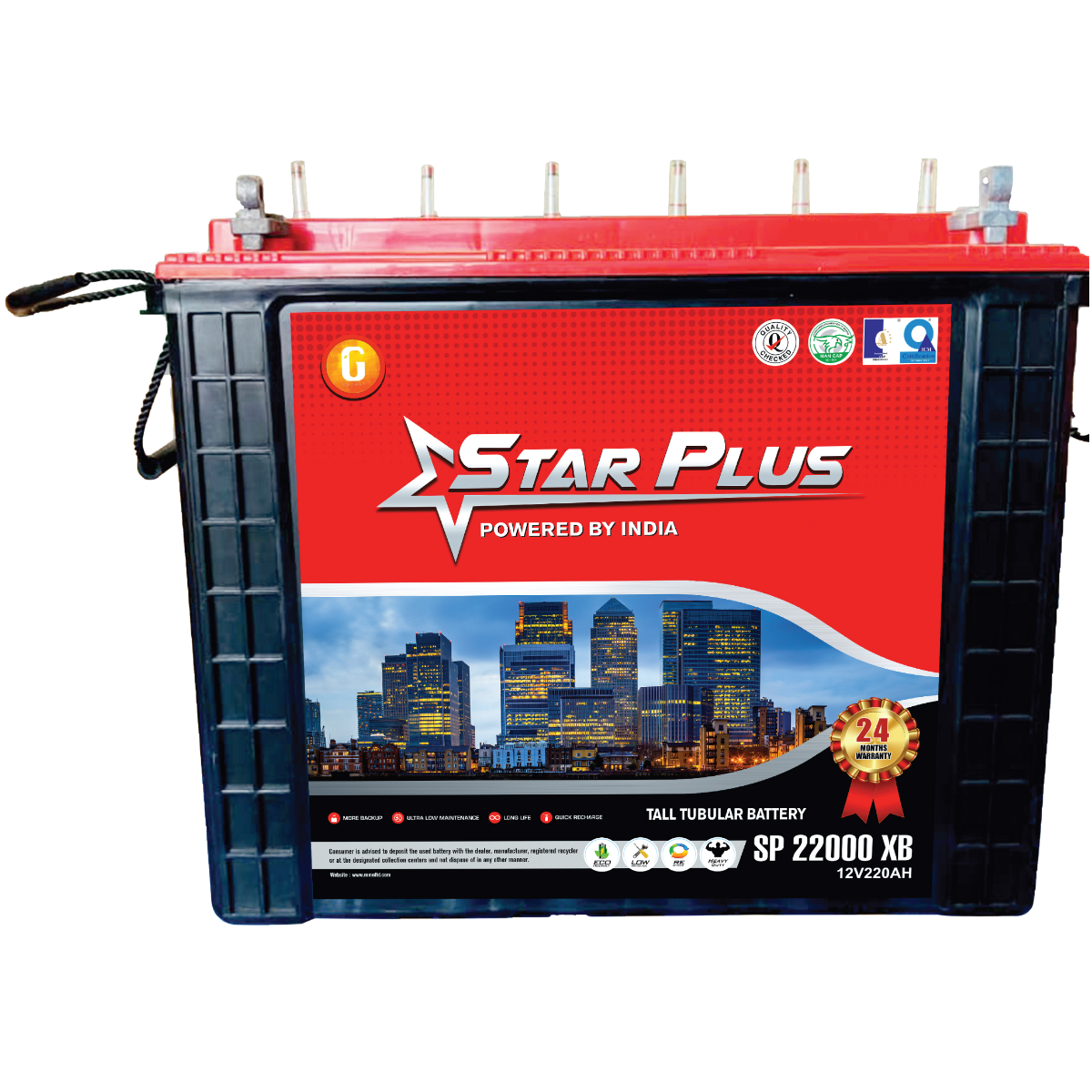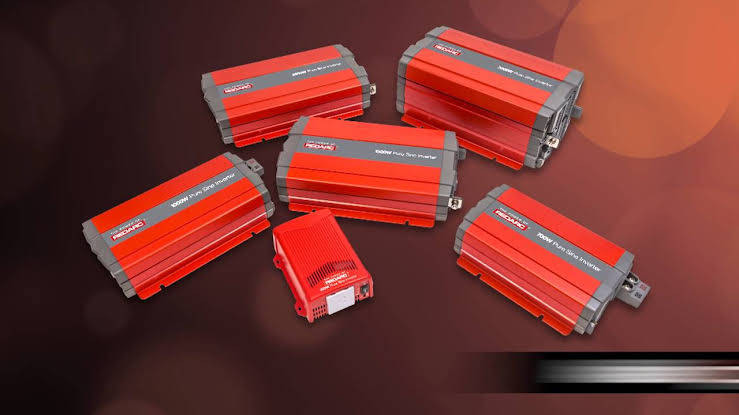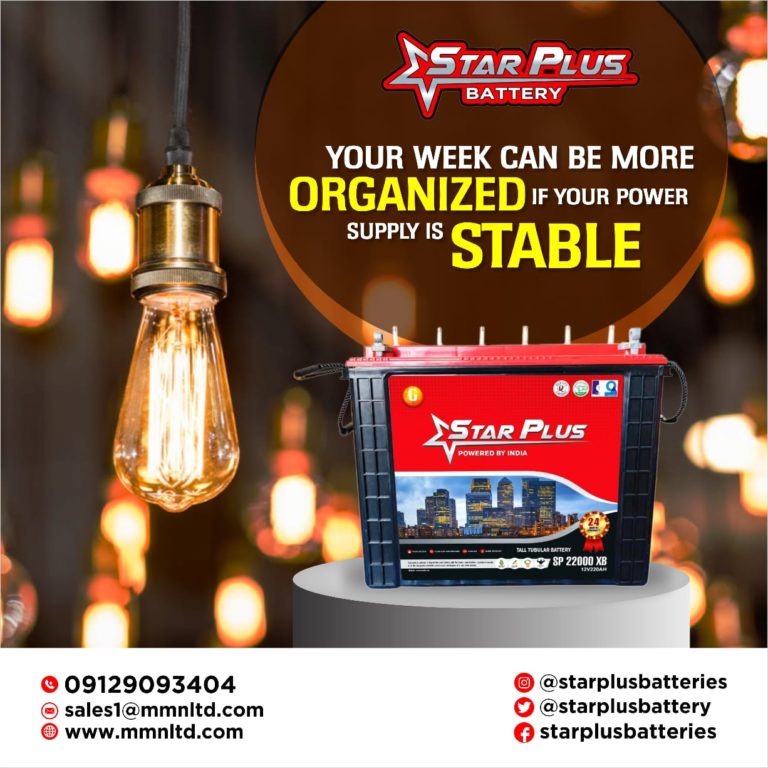How many years can an inverter battery last? How many hours can an inverter battery last? These questions are commonly asked by people concerned about the duration of service and the overall lifespan of their inverter battery.
An inverter battery is a deep cycle lead-acid or lithium-ion battery that provides Direct Current (DC) electricity. An Inverter converts this DC to AC so that it can be used to power our home appliances and other devices.
To know how long your inverter battery will last in Nigeria, you have to know the inverter load, its efficiency, battery voltage, capacity, and discharge rate. These seem like rocket science, but it’s very simple.
How Many Hours Does An Inverter Battery Last?

To know the number of hours your inverter battery will last, kindly calculate using this formula:
Backup Time (in hours) = Battery Capacity (in Ah) × Input voltage (V) / Total Load (in Watts)
Here is an example. Let’s assume that your inverter battery has a capacity of 220Ah. Also, the input voltage is 12 Volts.
Now, if you connect a lot of appliances, let’s say a total of 500 Watts. The Backup time will be 220 × 12 ÷ 500. That gives us 5.28 hours.
Such an inverter battery will last for 5.28 hours. But that’s only in the theory. In real-life practice, it will be a little bit less, due to power loss.
Inverters are not 100% efficient. But on average, a good inverter battery should have a power efficiency of 85 to 95%. The more the inverter efficiency, the more the power backup time.
How Many Years Does An Inverter Battery Last?
This depends on the type of inverter battery. We have three main types of inverter batteries.
- Flat plate inverter battery
- Tubular inverter battery
- Gel inverter battery
Flat plate Inverter batteries are cost-effective and good for places with low power requirements. Their lifespan is short, but they have the highest charging rate. Flat plate inverter batteries last for 3 years (on average).
Tubular inverter batteries are more expensive, although they are worth the price. They are good for places with high power requirements and longer service duration. However, they are not maintenance-free.
They last longer than flat plate batteries. A Tubular inverter battery has an average lifespan of 7 to 8 years.
Gel Inverter batteries are the most expensive and comfortable to use. They can do everything that a Tubular battery can do.
However, they use a special kind of charger. This is because they can be easily damaged with high voltages. A Gel inverter battery has an average lifespan of 4 to 5 years.
So as you can see, each inverter battery type has its lifespan. However, this is not the only factor that determines how long an inverter battery will last.
Other factors are also determinants. They include the frequency of power cuts, depth of discharge, type of charger, temperature, water refill and many more.
You Might Be Interested In – Types Of Inverters For Home Use In Nigeria
Which Is The Best Inverter Battery In Nigeria?
So far so good, the best inverter battery is the Tubular inverter battery, and the best inverter battery brand is Starplus Batteries.
“STARPLUS” is a brand under MMNL, which is Nigeria’s best manufacturing company and supplier of both automotive and tubular inverter batteries.
Starplus provides long-lasting Tubular inverter batteries. These tubular inverter batteries come in different capacities ranging from 130AH to 240AH.
Starplus inverter batteries not only last long but are very powerful too. The warranty ranges from 36 (18+18) months to 60 (36+24) months. Need a good inverter battery? You can get one here.
Things You Can To Do Extend The Lifespan Of Your Inverter Battery
Generally, an Inverter battery type is the major determinant of its lifespan. However, some things also influence how long it will last.
It does not only matter whether it’s tubular, flat plate or maintenance-free. How you use the inverter battery also matters. And here, we will take a look at some things you can do to prolong the lifespan of your inverter battery.
1. Stop Over-discharging Your Inverter Battery
The depth of discharge (DoD) of your inverter battery simply refers to how deep it has been discharged.
To increase the lifespan of your inverter battery, ensure that you don’t over-discharge it. If you fully discharge your inverter battery every time, you are already shortening its lifespan.
We will explain why this is so. All rechargeable batteries in the world, be it phone battery, laptop battery, inverter battery, UPS battery, etc all have a limited number of cycles.
Once the number of cycles is reached, the performance of the battery can no longer be relied upon. For instance, your inverter battery manufacturer might indicate that it has 400 cycles.
This means that once you charge and discharge (from 100% to 0%) the inverter battery 400 times, the battery will no longer function well and will need to be replaced.
This is why a battery that is manufactured to last 5 years may last for only 2 years. This is very possible if the buyer exhausts the battery till the inverter shuts down at 5% or even 0%. That will quickly use up the 400 cycles, and the battery will no longer be able to store electricity as it used to.
A battery’s cycle life is the number of charges and discharges that it can complete before its performance starts to decline. A battery’s cycle life is affected by how deeply it is discharged.
You Should Read – Buying The Right Inverter In Nigeria – The Ultimate Guide
If you discharge your deep cycle batteries to only 50% before recharging them, you are certainly prolonging their lifespan.
But this is not always possible in countries like Nigeria, where the NEPA grid’s power is not predictable or reliable. Most Nigerians will discharge their inverter batteries up to 80% since they don’t really have much choice.
Regularly discharging a Tubular or AGM deep cycle battery beyond 80% will shorten its life. However, this doesn’t apply to lithium inverter batteries. This type of battery can be discharged up to 90% without necessarily shortening its lifespan.
2. Charge Your Inverter Battery Regularly
It’s always good to discharge and recharge your inverter battery regularly. That way, the chemical components will be kept alive and healthy enough for years.
A fully discharged inverter battery will reduce its ability to hold charges if you abandon it for a long time without charging. Performing regular inverter battery charging will prolong the lifespan.
3. Use A Good Inverter Battery Charger
Another thing that decreases the lifespan of your inverter battery is incorrect charging by a bad charger. Each type and size of inverter battery has different chemical components.
As a result, each one has a different type of charger that is best suited for it. It will be unwise to use a charger not designed for your battery type and size.
A good and compatible inverter battery charger should be able to charge as fast and efficiently as possible. If possible, use the inverter battery charger that comes from your battery’s manufacturer.
Sometimes, a cheap charger may seem perfect like the one sold at the standard price. However, it may shorten your battery’s lifespan or even damage it in the long run.
4. Monitor The Temperature Of Your Inverter Battery
Temperature is another major determinant that affects the lifespan of an inverter battery. Temperature affects all inverter batteries, regardless of the type.
All deep cycle inverter batteries should be recharged, stored and discharged between 10°C to 35°C. This is equivalent to 50 to 95 degrees Fahrenheit.
To prolong the life duration of your inverter battery, don’t use or keep them at extreme temperatures. Doing this will stress the chemical constituents.
5. Refill Your Inverter Battery Regularly
Unless you are using a gel inverter battery, you must top up your battery regularly. Gel inverter batteries are maintenance-free and do not need water refilling.
On the other hand, a wet cell battery, like the tubular battery, must be refilled with Distilled water. This should be done from time to time.
Kindly note that only distilled water can be used. Water from your well, tap, stream or rainfalls are not distilled water and cannot be used.
This is because they have other reactive elements (and chemical compounds) mixed with them. They may taste fine to you, but believe me, they are not.
Distilled water is prepared in the laboratory by distillation. You will understand this if you are science-inclined, or if your career is within the scientific field.
After getting distilled water, make sure to refill at the appropriate time and with the needed amount. Failure to comply will shorten the lifespan and performance of your inverter battery.
To ensure the safety of the refilling process, add the distilled water after the battery is fully charged. Disconnect the charger and any connected device as well.
You should refer to your inverter battery manufacturer or seller for instructions on how to refill. Generally, buyers are advised to check their water levels at least once every month.






0 Comments